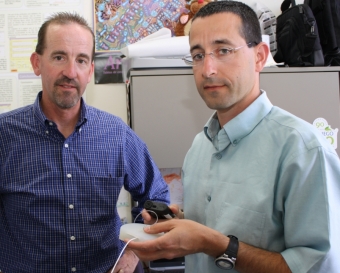
Anyone who lives with Type 1 diabetes is all too familiar with the sheer amount of effort — and often round-the-clock attention — required to manage the disease. For parents of children with Type 1 diabetes, the stress is amplified. Childrens’ unpredictable eating habits and food preferences, spontaneous physical activity and sensitivity to insulin require parents to be extra vigilant. The dreaded overnight hypoglycemia — a condition in which glucose levels drop to dangerously low levels between dinner and breakfast — requires parents to interrupt their own sleep habits so they can check their children’s blood sugar and give the child a snack if needed. Conversely, if the glucose reading is too high, they would need to administer insulin.
But with a $1.8-million, three-year grant from the National Institutes of Health, UC Santa Barbara chemical engineers Frank Doyle and Eyal Dassau and Yale University’s Dr. Stuart Weinzimer could make such hands-on care a thing of the past. And it could happen within a decade. The researchers and their teams are embarking on the development of artificial pancreas (AP) for children. The grant is the UCSB researchers’ first award for a pediatric closed-loop study.
Read the full story at:



